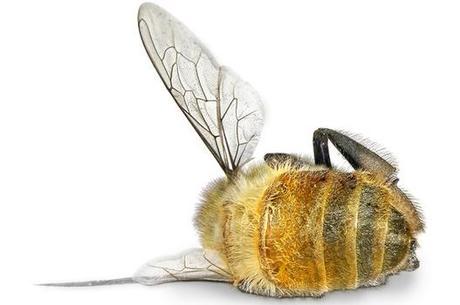 Washington, D.C. – “Many “bee-friendly” home garden plants sold at Home Depot (NYSE: HD), Lowe’s (NYSE: LOW) and Walmart (NYSE: WMT) have been pre-treated with pesticides shown to harm and kill bees, according to a study released today by Friends of the Earth and allies.
Washington, D.C. – “Many “bee-friendly” home garden plants sold at Home Depot (NYSE: HD), Lowe’s (NYSE: LOW) and Walmart (NYSE: WMT) have been pre-treated with pesticides shown to harm and kill bees, according to a study released today by Friends of the Earth and allies.
“The study, Gardeners Beware 2014, shows that 36 out of 71 (51 percent) of garden plant samples purchased at top garden retailers in 18 cities in the United States and Canada contain neonicotinoid (neonic) pesticides — a key contributor to recent bee declines. Some of the flowers contained neonic levels high enough to kill bees outright assuming comparable concentrations are present in the flowers’ pollen and nectar. Further, 40 percent of the positive samples contained two or more neonics.
“The study is a larger follow up to a first-of-its-kind pilot study released by Friends of the Earth last August. The new study expanded the number of samples and number of locations where plants were purchased, and also assessed the distribution of neonic pesticides between flowers and the rest of the plant.
“The high percentage of contaminated plants and their neonicotinoid concentrations suggest that this problem continues to be widespread,” said Lisa Archer, director of the Food & Technology program at Friends of the Earth-U.S. “Most gardeners have no idea that their gardens may be a source of harm to bees. We’re calling on retailers to get neonicotinoid pesticides out of their plants and off their shelves as soon as possible. Until then, gardeners should buy organic plants to ensure the safety of bees.
“Our data indicate that many plants sold in nurseries and garden stores across the U.S. and Canada are being pre-treated with systemic neonicotinoid insecticides, making them potentially toxic to pollinators,” said Timothy Brown, Ph.D., co-author of the report from the Pesticide Research Institute. “Unfortunately, these pesticides don’t break down quickly so these plants could be toxic to bees for years to come.”
Source: www.foe.org
GR: The dangers of pesticides are pervasive and worth repeating. Weed managers spray millions of gallons of pesticides on crops, along roads, and in parks. The U. S. Bureau of Land Management uses pesticides throughout the public lands of the 17 western U. S. states. The farm upstream from my home has weed-free zones that are probably maintained by pesticides. Bees serving as pollinators on the farm catch a full dose. Bees in yards and gardens downstream from the farm receive small doses that washed off the farm into the stream and into the groundwater. When home gardeners respond to the massive pesticide marketing efforts and use pesticides around their homes, they easily reach lethal levels.
Other posts on pesticides:
IUCN: Pesticides pose global threat….
Pollinator crisis about more than bees….
What’s killing all the bees?

